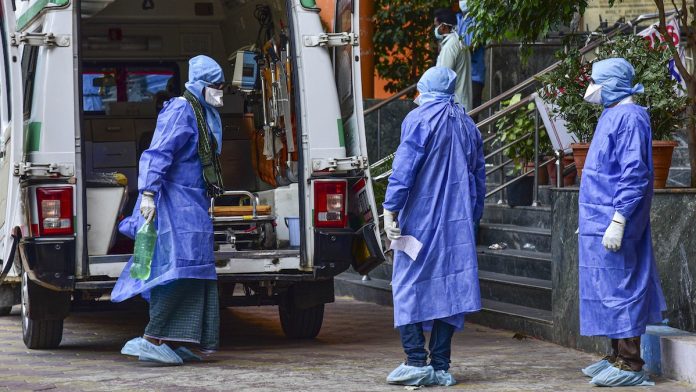As Covid-19 cases continue to rise worldwide, there have been reports of patients getting reinfected with Covid-19. Recent cases of re-infections in Delhi raise many questions about exactly how long antibodies fight the virus effectively.
The definition of reinfection, whether it is 90 days, 100 days, or 110 days, is still not decided even by the World Health Organization.
According to The New Indian Express report, by Somrita Ghosh, ‘One hospital under the Delhi government which is also a designated Covid-19 facility recently reported that five of its doctors have gotten reinfected with the virus for a second time, a claim which was later confirmed by an official who did not wish to be named.’
Two peculiar cases about two patients getting re-infected with the Covid-19 infection within a short span of the recovery from the viral disease was also reported at The Sir Ganga Ram Hospital.
The patients include a man with a co-morbidity and a healthcare staff of the hospital itself. As per the hospital, the man was found to be reinfected in mere 25 days of testing negative from the first attack of the Covid-19.
However, the staff was found to be reinfected within two months of the recovery from the previous episode. The disease severity was found to be in the mild category in both episodes. Surprisingly, the antibodies developed after the first infection were also found at a negligible level in the patients.
Dr. Atul Kakar, Senior consultant and Vice-chairman of the Department of Medicine, informed that the antibody levels were either negligible or totally absent in the body of the two patients since they tested negative for the antibodies.
The first patient, in his middle age with an underlying condition of diabetes mellitus, was found reinfected within a month of testing negative for the disease. The patient had liver issues due to alcohol and renal issues due to diabetes.
“He had nasal discharge, and was subsequently found to have a fungal infection of sinuses (mucormycosis) in addition to Covid-19 infection (RT PCR). He was treated with antifungal and other supportive medications and about 10 days later he was tested negative for Covid and discharged home. He was readmitted due to abdominal distension 25 days later and required hospitalization during which he was retested and found Covid-19 positive,” informed Dr. Kakar.
YOU MAY LIKE TO READ: Delhi To Reduce RT-PCR Test Rate, Announces Kejriwal
The second case involved a healthcare staff of the hospital. She was tested positive for Covid-19 in August and retested positive for the disease in October.
“She was initially admitted to the Covid facility for 3 days, but later shifted to home isolation for 17 days in view of the mild nature of her illness. On August 23, she rejoined work at the hospital after testing negative. In October, she developed a fresh episode of cough, generalized weakness, and malaise. On October 28, the patient was investigated and was found to be Covid-19 positive once again. She was readmitted in the Covid facility and tested negative in few days after being diagnosed,” Dr. Kakar said.
“During the course, the patient was tested for Covid-19 antibodies, but her antibody levels were negative,” he added. However, when asked whether the CT value was recorded during the investigation in both the cases during the first episode and the claimed reinfection, Dr. Kakar said that the hospital considered it inconsequential during the re-infection.
“Both these cases follow the defined criteria of re-infection. However, in ideal circumstances, gene sequencing should have been done in both the cases,” he added.
Dr. Kakar also said that the re-infection with Covid was considered a rare possibility so far. However, it may start happening with the patients who recovered from the mild form of the viral disease.
“During recovery from Covid-19 infection most patients develop antibodies against Covid after 1 to 3 weeks from the onset of symptoms. The development of these antibodies depends on multiple factors including the severity of the infection and the patient’s immune response to the infection. Thus, a patient who has mild disease may not mount a good immune response and may not develop antibodies,” he explained.
Dr. Kakar also cautioned that the patients who recovered from the Covid-19 should continue precautions like social distancing, hand washing, and wearing a mask in public places to avoid such re-infections.
Dr. Suranjit Chatterjee, senior consultant, Internal Medicine, Indraprastha Apollo Hospitals, concurred with Ganga Ram Hospital’s observation regarding patients with mild severity of Covid-19 but cautioned that one needs to be sure before categorizing the instances.
“We have been reporting cases where antibodies are not found after a period of recovery from Covid. However, it’s too nuanced to categorize the patients who come with re-onset of the Covid symptoms after recovery as reinfection,” he stated.
“Whether it’s a reinfection or a relapse, it should be a subject of study,” Dr. Chatterjee added.

